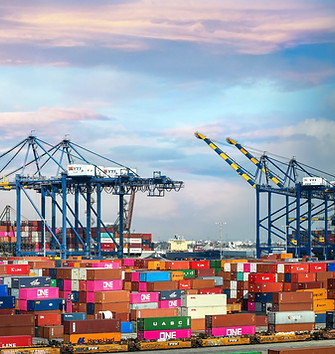
Sales & Logistics

Hong Kong as an international trade hub is extremely reliable and efficient in import/export clearance procedures avoiding risks such as delays and loss which can be detrimental to businesses. This is crucial especially when many of our products are temperature sensitive.
We also utilize our local agent partners in mainland China for sales, logistics, after sales services. This has proven to be a successful strategy as local expertise, timely delivery and service response contributed greatly to our customer satisfaction.


Tariff・VAT
Importing goods to China implicate three types of taxes
-
customs duties
-
value-added tax (VAT)
-
consumption tax (CT)
depending on the nature of the imported good and whether it falls under CT specified categories.

China has promulgated a series of regulations to reduce import-export taxes and duties to promote a higher level of openness and domestic consumption. These changes could affect companies that import and export taxable goods and services with China.
Customs duty rates on imports include most-favored-nation (MFN) duty rates, conventional duty rates, special preferential duty rates, tariff rate quota (TRQ) duty rates, general duty rates, and provisional duty rates for imports that may be implemented for a specified period of time. Customs duty rates on exports are set with one type. But likewise, there might also be provisional duty rates for exports that can be implemented for a specified period of time.


VOC
On March 4, 2020,the Standardization Administration of the People’s Republic of China (SAC) released four mandatory national standards on VOCs in coatings, adhesives, inks and cleaning agents. These new standards would affect enterprises using these products in the electrical and electronics industry, a ‘three-year action plan to win the battle for a blue sky’, in a bid to improve air quality. The plan proposes the implementation of special volatile organic compound (VOC) remediation plans for the petrochemical, chemical, industrial coating, packaging, printing and other key VOC emitting industries. It also proposes a ban on the production and use of high VOC-containing solvent-based coatings, inks, adhesives, etc. in key areas, and the implementation of special enforcement actions for VOCs, with the aim to reduce their total emission by more than 10% in 2020 when compared to 2015.
